A Decade of Recommendations
When we launched the Jewish Review of Books in 2010, the iPad was just about to go from being a gleam in the late Steve Jobs’s eye into yet another technological “disruption.” The late Philip Roth, who had just retired from fiction, had already announced that the screens had won and serious literature had lost. He may have been right—it’s probably still a little too early to say—but we doubt it. We’ve spent the last decade reading, editing, and recommending great writers and thinkers, and we see no reason that we can’t do it for another decade (or three).
Literature, like Judaism itself, is a cumulative tradition; it builds upon itself. One decade cannot be isolated from another. So, when we gathered 10 of our favorite writers to talk about their favorite books of the last decade, we did not restrict them to books published since 2010. Rather, we asked them which books they had found themselves recommending most often to others over the last 10 years and why.
Great writers are necessarily great and idiosyncratic readers, so the result of these conversations is an eclectic, surprising list, including fiction, history, biography, philosophy, mysticism, and biblical commentary, plus at least a few books that manage to combine all of these and more. The oldest choice reaches back to the 13th century while the most recent was published in the last year.
Resurrection and Isolation
BY LEORA BATNITZKY
Over the last decade, I have found myself repeatedly recommending two books that appear to have nothing in common: Jon Levenson’s 1993 The Death and Resurrection of the Beloved Son and Shulem Deen’s 2015 memoir All Who Go Do Not Return. Levenson’s book is a deep analysis of the particularist myth revolving around the death and resurrection of the “beloved son” (Isaac for Jews, Jesus for Christians) that constitutes both the Jewish and Christian traditions. Deen’s book is a painful personal story about the loss of his family when he broke with the Skverer Hasidic community of New Square, New York. But different as they are from one another, I have come to realize that these books both point to fundamental fault lines in Jewish self-understanding.
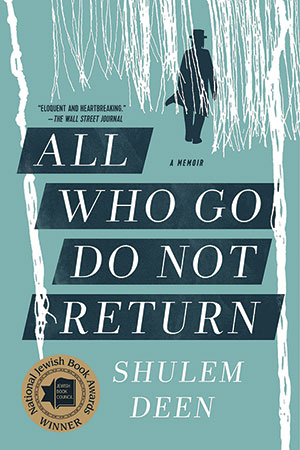
Levenson demonstrates, perhaps somewhat counterintuitively, that it is precisely because they share so much that the Jewish and Christian traditions cannot affirm each other. Then, by showing how close Judaism and Christianity are to one another, Levenson challenges contemporary Jews to recognize that Judaism has distinct theological underpinnings. Here, we see the fault line between classical Jewish sources and much of modern Jewish self-understanding (regardless of denomination or politics).
Deen’s memoir does not have anything to do with Christianity or, perhaps surprisingly in the context of his ultra-Orthodox background, much to do with theology. But what Deen’s narrative of loss and resilience points to is the divide between an isolationist Jewish world and a Jewish world that, to varying degrees, embraces modern life, including modern literature, science, and professions. This fault line is greater than any of the divisions among the nonisolationist Jewish communities. We see this divide popping up not only in individual Jewish lives, such as Deen’s but also in the difficult task of presenting a unified Jewish response to resurgent antisemitism in the United States.
Leora Batnitzky is the Ronald O. Perelman Professor of Jewish Studies at Princeton University and the author, most recently, of How Judaism Became a Religion: An Introduction to Modern Jewish Thought (Princeton University Press).
The Beginning of Wisdom
BY ERIC COHEN
In 2001, I went to work for Dr. Leon Kass as part of the staff of the President’s Council on Bioethics. My Jewish life and knowledge were fairly limited at the time. But here we were considering some of the most fundamental moral problems of the modern age—cloning and stem cells, memory-altering drugs and genetic engineering, assisted suicide and organ markets. And there was our chairman—Dr. Kass, armed with an MD and a PhD in biochemistry—hard at work finishing his magisterial commentary (20 years in the making) on the book of Genesis. This was no accident. The questions we faced (and still face) about how to use our technological powers for good—and how to resist the high-tech dehumanization of our lives—can only be confronted wisely by having a moral understanding of human nature. This means, in truth, a theological anthropology, an account of who we are: neither beasts nor gods but God-seeking mortals created in the image of God. And for this, Genesis was the best guide, and Kass’s book The Beginning of Wisdom: Reading Genesis is the best guide I know of to that best guide.
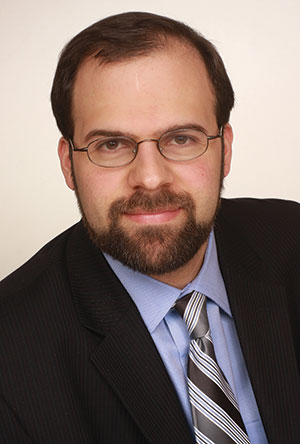
It was only later that I came to appreciate Kass’s commentary as a Jewish book: a window into the distinctly Hebraic understanding of justice and injustice, human reason and human pride, sexuality and family life, sin and commandment—seen in contrast to that of its Canaanite, Babylonian, and Egyptian rivals (and, in a different way, in contrast to the Athenian vision of human excellence and human tragedy). What I eventually realized, after years of helping to run Tikvah programs for students, is that Kass’s book is the best such book for Jews of all backgrounds. Reading Genesis with Kass deepens the faith of the already-committed and challenges them, and it invites in the openminded and perhaps (as it did for me) helps them discover for the first time the committed Jew they want to be.
For the coming decade, I recommend Dr. Kass’s commentary on Exodus, which will be published early next year.
Eric Cohen is the executive director of the Tikvah Fund and author of In the Shadow of Progress: Being Human in the Age of Technology (Encounter Books).
Hallelujah
BY MATTI FRIEDMAN
I don’t think I’ve recommended any book as much as I’m Your Man: The Life of Leonard Cohen. In this superb biography from 2012, music journalist Sylvie Simmons traces Cohen’s remarkable rises and falls through the bohemian clubs, chaotic festivals, and drug-powered studio sessions of the 1960s and beyond. But she also grasps the Jewish nature of his literary fuel: Cohen’s childhood at Shaar Hashomayim, the upper-class synagogue his family founded and led; his inconsistent rebellion against the embrace and stranglehold of Jewish Montreal; his love affair with Hebrew prayers and Bible stories about baffled kings with secret chords and fathers sacrificing their children.
I was interested to learn here about the source of some of that unique literary DNA: Rabbi Solomon Klonitzky-Kline of Kovno, Lithuania, a scholar so versed in the workings of the holy tongue that he was called sar ha-dikduk, the “prince of grammarians,” was Cohen’s maternal grandfather. Simmons’s work might not be a “Jewish” book, exactly, but it’s certainly about a Jewish cultural hero who will be remembered as one of the most enduring of the 20th century.
Matti Friedman, a journalist in Jerusalem, is the author, most recently, of Spies of No Country (Algonquin Books).
Eliot’s Investigative Spirit
BY ALLEGRA GOODMAN
The Jewish book I find myself recommending most is an oldie, George Eliot’s 1876 Daniel Deronda. Why is this? Why does this novel mean more to me than the work of 20th-century giants like Philip Roth or Saul Bellow? After all, I am a Jewish American writer. I should look up to them. And yet, I feel closer to the independent-minded, non-Jewish Eliot and her long-heavily embroidered work of imagination. I admire many aspects of this work that others do: its exploration of Jewish identity and history, its prescient discussion of the Jewish state—a future Eliot imagined even before the birth of Zionism. I applaud Eliot’s courage and imagination as she attempts to write Jewish characters at a time when Anthony Trollope thought nothing of cruelly caricaturing Jews in his 1871 The Eustace Diamonds. I admire Eliot’s project, but, more than that, I look up to her because she did not limit herself to writing about what she knew. Hers was a questing mind, and she maintains a spirit of inquiry in this novel. She does not presume a Jewish voice or attempt to adopt a Jewish identity. She approaches her work with humility and curiosity. It is this investigative spirit I admire most and aspire to in my own work.
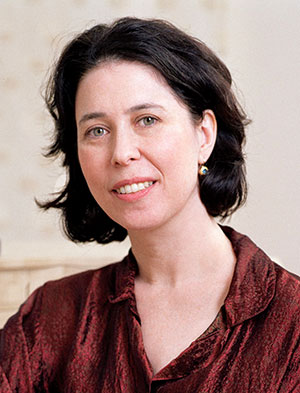
An English writer crafts a great Jewish novel: how liberating to see that and to think that, as a Jewish writer, I do not have to limit myself to writing about Jewish culture and community. If I want to write about scientists, I can; if I want to explore other kinds of belief and doubt, I can. Bracing as well to think that fiction does not have to focus solely on the author’s experience or ambivalence, anger or trauma. Eliot, like Tolstoy, is an artist who looks out at the world for her material. Yes, her work is deeply felt, permeated with her ideas, but her stage is vast, her characters wonderfully varied. She is not always successful; her work is imperfect—but it is never small; it is never petty. She has the expansive imagination required to write about a particular culture at a particular moment. And, for the most part, she is honest enough and rigorous enough to avoid settling for types and clichés. Because of this, Daniel Deronda is my favorite Jewish novel.
Allegra Goodman’s novels include Intuition, The Cookbook Collector, Paradise Park and Kaaterskill Falls (a National Book Award finalist). She lives with her family in Cambridge, Massachusetts, where she is writing a new novel.
The First Modern Jewish Intellectual
BY ADAM KIRSCH
Since I first discovered it eight years ago, I’ve been fascinated by the Autobiography of Solomon Maimon, which was first published in Germany in two volumes in 1792–1793. If you’re interested in how the modern Jewish intellectual evolved out of the traditional Jewish scholar, Maimon’s memoir is indispensable, since it shows that process happening from the inside. Born in a poor Lithuanian village in 1753, Maimon was recognized early on as an illui, a talmudic prodigy. He was destined for a rabbi’s life until, as a young man, he rebelled against Jewish life and struck out on his own for Berlin, the capital of the Enlightenment, where he became a friend of Moses Mendelssohn and an influential critic of Immanuel Kant.
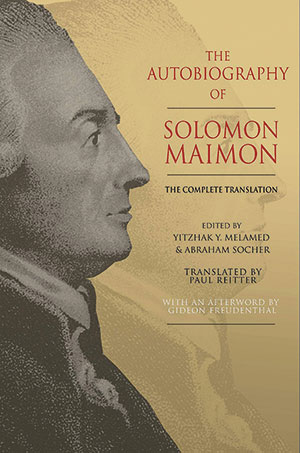
In vivid personal anecdotes, as well as in his systematic explanations of Kabbalah and Hasidism, Maimon shows how a religious tradition that was once able to nourish the greatest minds—like that of Maimonides, from whom Maimon took his pen name—had come to seem stiflingly backward, an obstacle to truth rather than a path to it. The Autobiography achieved classic status in the 19th century—Goethe and George Eliot both read it—but, when I discovered it, in an 1888 translation, the book was long out of print in English. Happily, in 2018, Princeton University Press published a new, complete translation, edited and annotated by Yitzhak Melamed and Abraham Socher (the editor of the JRB) and translated by Paul Reitter. You don’t have to be a student of German philosophy or Jewish history to find it a fascinating human and historical document.
Adam Kirsch is an editor of the Wall Street Journal’s weekend review and the author, most recently, of Who Wants to Be a Jewish Writer? And Other Essays (Yale University Press).
Imaginative Excess
BY RUBY NAMDAR
Whether it is in the original Aramaic, in the clunky traditional Hebrew translations, or in Daniel Matt’s wonderfully poetic 21st-century English rendering, Sefer ha-Zohar (literally, the Book of Splendor) reads like no other text, traditional or modern. Arcane, mercurial, and anarchic, the best comparison I can make is to Lewis Carroll’s Alice’s Adventures in Wonderland. In the zoharic wonderland, words and images become concrete while reality remains fluid. A metaphor is never to be trusted to behave itself and remain a metaphor while a pious statement can always be trusted to result in a heretical conclusion.
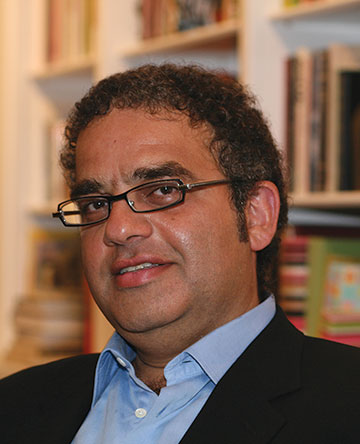
I’ve been studying this captivatingly baffling composition for almost seven years in a wonderful study group led by the illustrious Nathaniel Berman (a professor of international law at Brown University by day and a master of the secret zoharic teachings at night), and I have yet to come to terms with its unorthodox nature. The reccurring theme of this fragmented composition is the fragmentation of creation and of the godhead that did or did not create it. I cannot decide whether the true nature of this book is divine or diabolic and cannot understand why the religious establishment didn’t ban it not only for its seemingly sacrilegious content but also for its sinful excess of imagination. It’s best studied at night, in very good company, and preferably while sipping very good wine.
I think Operation Shylock is the only Philip Roth novel read more by Israelis than Americans. This whimsically inventive novel—one of Roth’s very best—offers an astute, acerbic, and daring parsing of the Israeli condition and the American Jewish relationship to it. Roth brilliantly reappropriates an old literary trick: separating the protagonist (named, of course, Philip Roth) from his alter ego (whose name too is, of course, Philip Roth) and allowing this literary doppelganger to run amok. He argues for the dismantling of the Zionist dream and the mass reverse-exodus of the Jews back to the diaspora. And then, Roth performs his famous magic, engaging in various perverse twists and turns, including the seduction of his doppelganger’s non-Jewish girlfriend in a fancy Jerusalem hotel room and a long, philosophical interrogation by an elderly mastermind of the Israeli Mossad. It’s a page-turner, one of the funniest books I’ve ever read, and a searing exposition of the complex and fantasy-laden relationship between Israel and the diaspora. I find myself recommending it often.
Ruby Namdar is the author, most recently, of The Ruined House, which won the 2014 Sapir Prize—Israel’s most prestigious literary award—and was published in English by Harper in 2017. He lives in New York City and teaches Jewish literature.
Plastic Brains
BY ALANA NEWHOUSE
The book I find myself recommending over and over, almost monthly, is The Brain That Changes Itself, a 2007 exploration of the world of neuroplasticity. It may be the most Jewish book I’ve read in a decade, or perhaps it’s the book that has most expanded my sense of my own Jewishness or the book that I’ve come to see as the greatest balm and inspiration for the anxiety of our days. All I know is, at this moment, I would do anything to have every Jew in America read it.
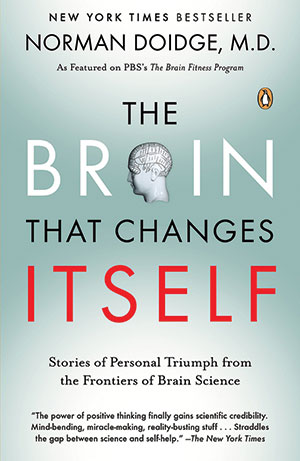
If you haven’t yet, you’re late to the party as it was already a massive bestseller—a real one, with over a million copies sold. In it, Norman Doidge—who studied classics and philosophy before moving on to medical school followed by psychiatric and psychoanalytic training—dismantles the widely held perception of the brain as a machine, one that simply runs a set course until it doesn’t anymore. Instead, he draws out—via a series of unexpectedly suspenseful profiles of scientists as well as patients—the emerging truth that the brain is changing all the time and can be made to change in many, many directions.
Doidge’s father was a Holocaust survivor killed in a freak elevator accident when Doidge was 17 months old, and his mother died when he was 20. An inordinate number of the researchers profiled were Jews or Jewish refugees from Europe. These are not irrelevant factoids. At a moment when we’re all being confronted by wildly unexpected scenarios—political, cultural, religious, epidemiological—many Jews I know feel paralyzed, not so much afraid to change as afraid that they can’t. This is understandable, especially for Americans pining for the stability to which they’ve become accustomed, but it is born of entitlement and fear and is deeply un-Jewish. We have survived and thrived by embracing the chaos of change—by resisting false hope but also false despair. If our brains are indeed “neuroplastic from cradle to grave,” Doidge argues, then “people have to rethink their lives.” Why? Because, if you can change, perhaps you must.
Alana Newhouse is the editor in chief of Tablet Magazine and the author of The 100 Most Jewish Foods: A Highly Debatable List (Artisan).
Liberated from Bondage
BY BARI WEISS
As a kid, the image that always struck me during the Seder was that of the great rabbis—Rabbi Eliezer, Rabbi Yehoshua, Rabbi Elazar ben Azariah, Rabbi Akiva, and Rabbi Tarfon—gathering in the wake of the Temple’s destruction to stay up all night discussing the exodus from Egypt (and surely their own expulsion by the Romans from Jerusalem). You cannot understand the Jewish people without the haggadah. It contains our origin story—how God delivered our ancestors from slavery into freedom with that evocative mighty hand and outstretched arm—which is also, crucially, the origin story of liberty itself. But it also contains another metanarrative: the story of how we have told our story to ourselves over the generations. What makes the haggadah different from reading the text of Exodus is that it tells us how Jews in other times and places fulfilled the obligation to feel as they, themselves, were personally liberated from bondage—including those five rabbis that second-century night in Bnei Brak.
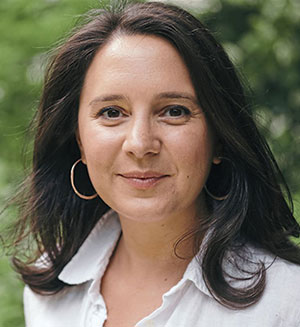
These days, happily, there are thousands of haggadahs to choose from. The trouble is that so many of these thematic versions—feminist! environmental!—leave out the bits that grate on modern ears while conveniently turning Pharaoh into an avatar for their own political nemeses. I have a recommendation. One haggadah to rule them all—or at least to replace Maxwell House as the standard for the American Jewish community. It’s called, well, The Passover Haggadah. (Actually, it does have a subtitle: An Ancient Story for Modern Times.) It manages to be true to the text that was first codified in the 10th century while providing sharp commentary from contemporary sages such as Liel Leibovitz and Howard Jacobson. I am biased since my friends at Tablet Magazine made it. But then again, they are my friends in part because they understood the need for a haggadah just like this one.
Bari Weiss is an op-ed staff editor and writer for the New York Times. Her first book, How to Fight Anti-Semitism, was published by Crown in September 2019.
The Moral Universe
BY RUTH R. WISSE
I always recommend Saul Bellow’s 1970 novel Mr. Sammler’s Planet—most recently in a Tikvah podcast—as an indispensable guide to our modern condition. Its main character is a European Jew in his seventies, slightly damaged by his experiences in wartime Poland, who resides on New York’s Upper West Side in the late 1960s. He is troubled by the deterioration of behavior, values, and ideas in America and the absence of credible authority to keep civilization in check. Everyone around him recognizes how keenly he sees out of his one good eye, and the young seek his advice, though they don’t take it. Bellow writes, “The strain of unrelenting analytical effort gave Mr. Sammler a headache.” The keen reader may experience similar stress but will be well rewarded. One of my best payoffs as a teacher was the Harvard student who told me she had come to college intending to change the world and had learned from Mr. Sammler that she could also change it for the worse.
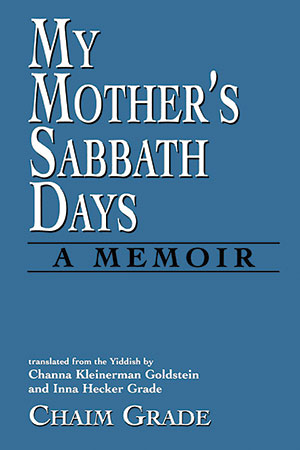
Chaim Grade (pronounced “grah-deh”) was a great Yiddish poet who became a great novelist when he turned to prose after the war. I have taught and recommended many of his works, and I even translated one of his novellas, The Well. I think my favorite of his writings is My Mother’s Sabbath Days, an autobiographical fiction, the first part of which is centered in Vilna in the 1930s. Grade, the only remaining child of a widowed mother, lives with her in the back room of a smithy, struggling like many a teenager to free himself from a parent’s oppressive oversight and expectations. In most of his writing, Grade portrays the intense, male world of the Polish yeshivas. Here, he shows the religious life of Polish Jewry through the practice of an “ordinary” fruit peddler. His mother, Vele, is an unvarnished model of the moral universe the Nazis destroyed.
Ruth R. Wisse is professor emerita of Yiddish literature at Harvard University. Her book Jews and Power (Schocken) was recently republished. She is currently a distinguished senior fellow at the Tikvah Fund.
Rattled by the Same Passions
BY STEVEN J. ZIPPERSTEIN
Books are never the same—not those that truly count; they change as you change. It was the radicalism, the sensual yearning, the Jewishness just beyond reach (“a lock of woman’s hair lay in a book of the resolutions of the Sixth Party Congress, and crooked lines of ancient Hebrew verse . . .”) that first drew me to Isaac Babel. More than merely being drawn to his Red Cavalry, I experienced it like the letter of an older, lost brother, now dead but more alive than anything else.
My hair was as long as Rasputin’s, and mine was the inchoate intensity of a displaced yeshiva student hungry for something resembling the certainty or, still more important, the warmth I’d abandoned. Babel, I found, was wryly distrustful of all orthodoxy yet unwilling to be left behind from the seductive turbulence of 1920s Russia. I, too, sought—with the sparsest success—to enter frenetic late-60s Los Angeles; Laurel Canyon just a mile and a half away was as distant as Moscow.
As time passed, this was no longer the Babel I sought. What keeps me close to him now was his uncanny capacity to capture ephemeral pleasure, the joys amid life’s exasperating chaos. There is something mournful and beautiful and even prayerful in Babel: “On days when there was a break in the fighting, the two of us drank hot tea. We were rattled by the same passions. Both of us looked upon the world as a meadow in May over which women and horses wander.”
Steven J. Zipperstein is the Daniel E. Koshland Professor in Jewish Culture and History at Stanford University. His latest book, Pogrom: Kishinev and the Tilt of History (Liveright), has appeared in paperback. He is currently at work on a biography of Philip Roth for Yale’s Jewish Lives series.
Suggested Reading
The Chief Rabbi’s Achievement
Lord Jonathan Sacks is the most gifted expositor of Judaism in our day, and has written more than 20 books that are both learned and very accessible.
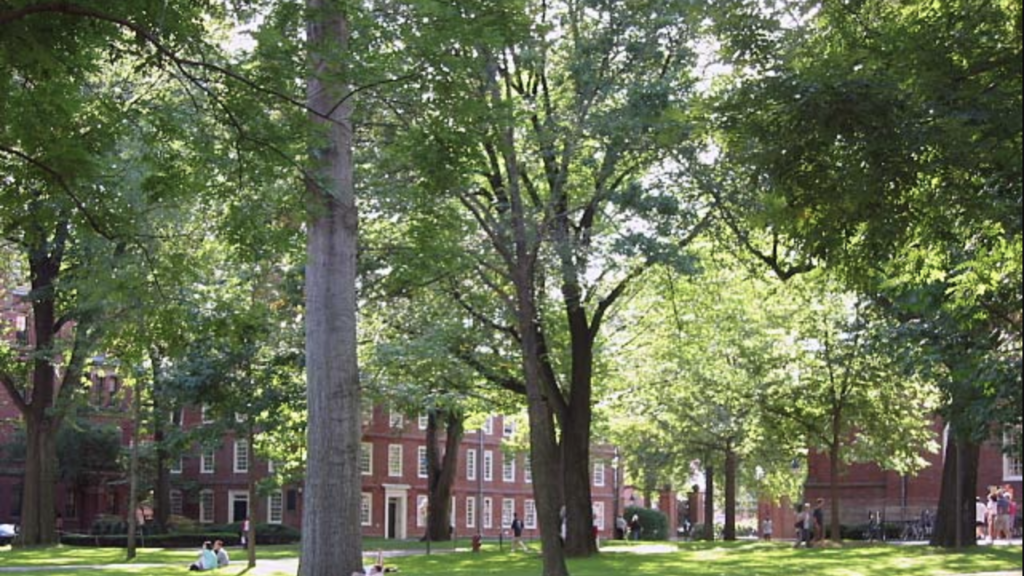
The Hebrew Teacher
After his baptism, Judah Monis observed the Christian Sabbath on Saturdays, giving rise to suspicion, and for 38 years taught mandatory Hebrew to rebellious students.
Letters, Winter 2022
Bastard, Orphan...Jew?; Squirrel Hill; Great Sages
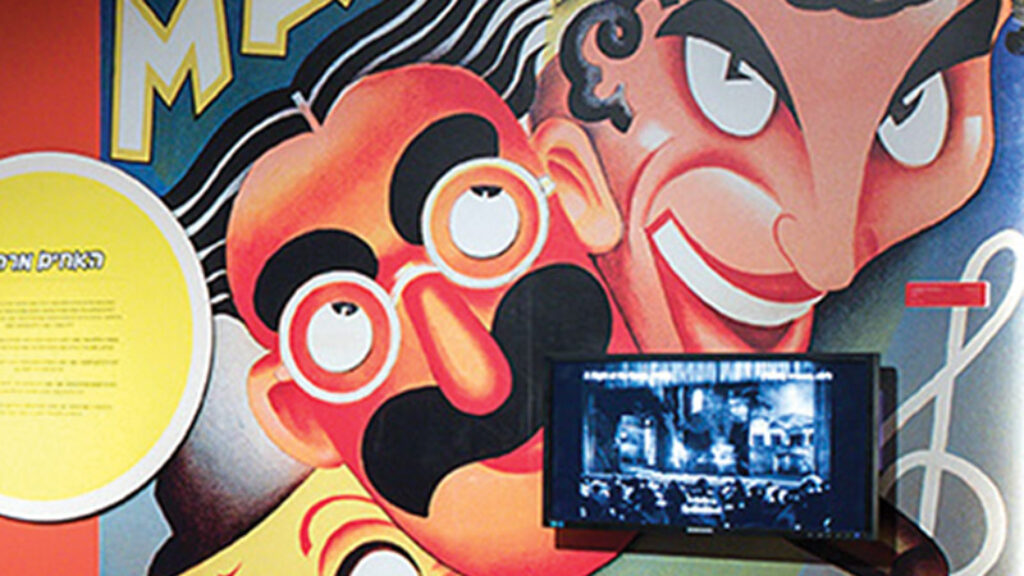
Of Synagogues and Seinfeld
It's an interesting time to open a museum that argues for the interconnectedness of the Jewish world since it is virtually impossible for non-Israelis to enter the country.
Comments
You must log in to comment Log In